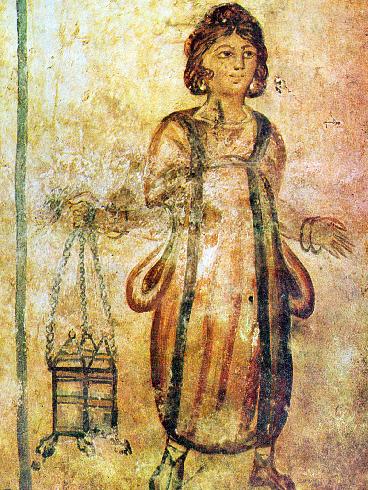Podcast: Play in new window | Download (Duration: 1:09:38 — 96.3MB) | Embed
Subscribe: Apple Podcasts | More

Fresco of a servant in the Roman Tomb of Silistra in northeastern Bulgaria-4th Century AD
Image in the Public Domain
Slavery
Far too often people will read the Bible or, more often, hear the Bible read and become confused, startled, disgusted and even angry with what it says. There are so many things that get in the way of the proper understanding of the things of God. Among the most insidious is our cultural mindset. Now, this, of course, isn’t a new problem. Down through the centuries, the way we have been taught by the society in which we were born and raised has had an enormous impact on our ability to learn new things. This is yet another reason why we have to make sure we take time to learn what Scripture is saying to us. So many people turn away from God because of what they have been TOLD the Bible says or, at the very least, what they BELIEVE the Bible says. In our English language versions of the Bible we see the Apostle Paul, time and again, refer to himself as a “servant of Jesus Christ”. I believe our modern use of the word “servant” does not adequately convey Paul’s view of his relationship to Our Lord. If it were possible for Paul himself to translate his letters for you and I into our modern English, he would most certainly NOT use the word “servant”. He would undoubtedly use the word “slave”. Now, why is that important? What difference does it make whether Paul meant “servant” or “slave”? Well, that is the topic of our discussion in this episode. Have a listen and decide for yourself. But, before you do that, make sure you pray that God give you spiritual ears to hear and a spiritual heart to understand. Ask Him to open up His Word in the way He originally meant it to be presented.
